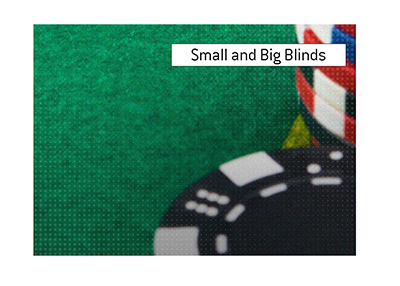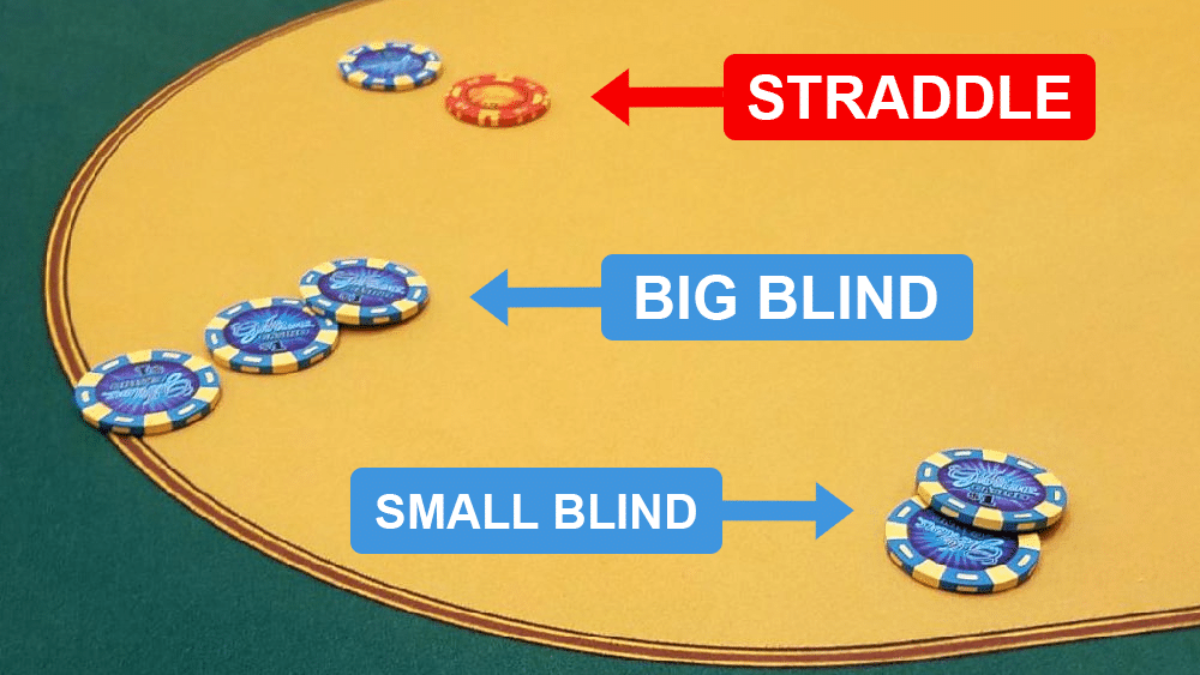Poker Blind Definition
How to Set Up a Poker Blinds Schedule A typical T1000 blinds schedule for a No-limit Texas Hold'em poker tournament is shown to the right. T1000 means that each player is issued 1000 chips at the start of the tourney. This blinds schedule starts out slow for the first hour and should result in a poker tournament of about 4 hours. Blind Structures. We referred to blind structures earlier and these are an important part of any poker tournament. The blind structure, which can also be referred to simply as the tournament structure, stipulates the blind levels used and the length of time that each blind level lasts. It’ll also stipulate how many chips each player starts with. Blind – A blind wager used to seed the pot, usually placed on or to the left of the dealer button. A blind is a forced bet that is placed before the cards are dealt. It is used to seed the pot in flop and draw games. The blinds in poker are designed to start the betting action. In flop games like Texas hold’em and Omaha the blinds are posted by the two players to the left of the dealer button. The first player to the left of the dealer button is the “small blind.” The player in the small blind is required to put in half the amount of the big blind. Free poker clock and timer. Use this blind timer in your poker tournaments! Utilisez ce compteur de mise pour vos tournois de poker.
What are poker blinds ?
Based on the limit of the poker game the player to the left of the dealer’s button (small blind) and the player two to the left of the dealer (big blind) are required to place mandatory bets in the pot before cards are dealt (Small blind has to put half of the big blinds amount). These bets count toward the first round of betting. So if the pot is not raised pre-flop, small blind will only have to put half a bet to call and big blind has the option of raising or just checking.
In a poker tournament, blinds go up gradually. This is to ensure that the tournament finishes on a timely manner. (the higher the blinds get the more players tend to get eliminated).

Blinds usually go up after predetermined periods of time. (for example every 15 or 20 minutes).
Two main factors determine blind structure of the game:
- Starting chip amount
- How long you want the tournament to last.

Poker Blind Structure Tips
- The first big blind should be 1/50 of the starting chip amount. (or the starting chip amount should be 50 times the starting big blind). So if everyone starts with 1000 in chips the first big blind should be 10/20.
- Blind period is the time each blind lasts:
- Typical tournament blind periods are 10, 15, 20, 30, or 60 minutes.
- Blinds period should be the same for every blind.
- The faster the blind period is the faster the tournament ends and the more luck involves. So it’s a good idea to have slightly longer blind periods at your house game. 15 or 20 minute blind periods are good choices. Blinds in online websites tend to go up faster. This is because online poker action is much faster than live poker.
- Blinds typically double after each round. If the first big blind is 10/20, the next one should be 20/40.
Calculate Blind Structure
Follow these simple steps to create blind structure that best fits your game:
- Decide your starting chip amount.
- Divide it by 50. This should be your first big blind.
- Make your final big blind (when the tournament should finish) equal to your starting chip amount.
- Arrange the middle level blinds so that they gradually increase from your first big blind to the last one. It is best to keep the first couple blind periods low.
- Add the period (times) together. If it seems too long takes couple levels off the chart, and if it seems short add couple level to the chart.
Sample Tournament Blind Structure Chart
Following is a chart of recommended blind structures based on different starting chip stacks :
Poker Blind Definition Meaning
| Blind Period | Chip Stack | |||
| 100 | 1000 | 2500 | 5000 | |
| 1 | 1/2 | 10/20 | 25/50 | 50/100 |
| 2 | 2/4 | 20/40 | 50/100 | 100/200 |
| 3 | 3/6 | 30/60 | 75/150 | 150/300 |
| 4 | 5/10 | 50/100 | 100/200 | 200/400 |
| 5 | 10/20 | 75/150 | 200/400 | 300/600 |
| 6 | 15/30 | 100/200 | 300/600 | 500/1000 |
| 7 | 25/50 | 150/300 | 500/1000 | 750/1500 |
| 8 | 50/100 | 200/400 | 750/1500 | 1000/2000 |
| 9 | 75/150 | 300/600 | 1000/2000 | 1500/3000 |
| 10 | 100/200 | 400/800 | 1500/3000 | 2000/4000 |
| 11 | 150/300 | 500/1000 | 2000/4000 | 3000/6000 |
| 12 | 200/400 | 1000/2000 | 2500/5000 | 5000/10000 |
definition - blind poker

definition of Wikipedia
Advertizing ▼
Wikipedia
The blinds are forced bets posted by players to the left of the dealer button in flop-stylepoker games. The number of blinds is usually two, but it can range from none to three.
The small blind is placed by the player to the left of the dealer button and the big blind is then posted by the next player to the left. The one exception is when there are only two players (a 'heads-up' game), when the player on the button is the small blind, and the other player is the big blind. (Both the player and the bet may be referred to as big or small blind.)
After the cards are dealt, the player to the left of the big blind is the first to act during the first betting round. If all players call the big blind, the big blind is then given an extra opportunity to raise. This is known as a live blind. If the live blind checks, the betting round then ends.
Generally, the 'big blind' is equal to the minimum bet. The 'small blind' is normally half the big blind. In cases where posting exactly half the big blind is impractical due to the big blind being some odd-valued denomination, the small blind is rounded down to the nearest practical value. For example, if the big blind in a live table game is $3 then the small blind will usually be $1 or $2 since most casinos do not distribute large quantities of $0.50 poker chips.
The blinds exist because Omaha and Texas hold 'em are frequently played without antes, allowing a player to fold his hand without placing a bet. The blind bets introduce a regular cost to take part in the game, thus inducing a player to enter pots in an attempt to compensate for that expense.
It is possible to play without blinds. The minimum bet is then the lowest denomination chip in play, and tossing only 1 chip is considered a call. Anything higher than that is considered a raise. Poker without blinds is usually played with everyone posting an ante to receive cards, but it is technically possible to have absolutely no ante or blinds at all.
Contents
|
Blinds in tournament play
In poker tournament play, blinds serve a dual purpose. In addition to the purpose explained above, blinds are also used to control how long the tournament will last. Before the tournament begins, the players will agree to a blinds structure, usually set by the tournament organizer. This structure defines how long each round is and how much the blinds increase per round. Typically, they are increased at a smooth rate of between 25% and 50% per round over the previous round. As the blinds increase, players need to increase their chip counts (or 'stacks') to stay in the game. The blinds will eventually consume all of a player's stack if he or she does not play and win more.

Goals
There are two main goals for the blinds structure:
- Ensure that by the time the desired duration of the tournament is reached, it will be very hard for players with small stacks to stay in the game. This forces players with smaller stacks to play them aggressively, thus increasing their chip count or losing everything quickly.
- Ensure that players, in general, do not have a large stack relative to the blind level.
If desired, antes can be added to further increase the pressure to win more chips.
Example
Small Blind Poker Definition
If each player in a tournament starts with 5,000 in chips and after 4 hours, the big blind is 10,000 (with a small blind of 5,000), it will be very difficult for a player with only 15,000 in chips to stay in the game.
External links

This entry is from Wikipedia, the leading user-contributed encyclopedia. It may not have been reviewed by professional editors (see full disclaimer)



